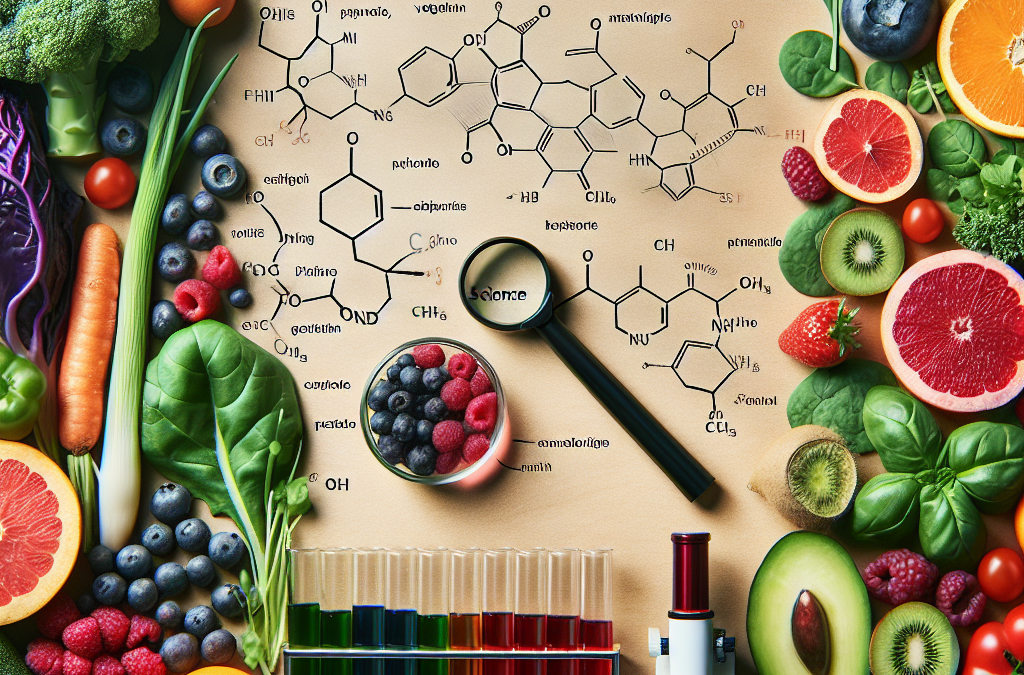Understanding Phytonutrients
What Are Phytonutrients?
So, let’s kick things off by diving into what phytonutrients really are. I remember my first encounter with this term—it felt like a fancy word thrown around in health circles. In a nutshell, phytonutrients are natural compounds found in plants that are believed to have beneficial effects on our health.
These compounds aren’t essential for basic human survival like vitamins and minerals, but they can help us thrive. They come in a wide variety of types, each offering different health perks. It’s like having a toolbox where each tool does a unique job. The more diverse the plants you eat, the more tools you have in your kit.
There are thousands of phytonutrients, but they often fall into categories like flavonoids, carotenoids, and glucosinolates, to name a few. Each category has its own superpowers that can help fight diseases or reduce inflammation. It’s mind-boggling how much power lies within these colorful fruits and veggies!
The Role of Antioxidants
How Antioxidants Work
Okay, let’s talk about antioxidants—the superheroes of the phytonutrient world! Antioxidants are those compounds that help protect our bodies from damage caused by free radicals. Think of free radicals as unwanted guests—they crash the party and can cause chaos in your cells.
When I learned about how antioxidants neutralize these free radicals, it was like a light bulb moment for me. They do this by donating an electron, essentially calming down these rowdy molecules. This process helps reduce oxidative stress, which is linked to various diseases like heart issues and even cancer.
Eating a diet rich in fruits, vegetables, nuts, and seeds is a fantastic way to bolster your antioxidant intake. Each colorful bite delivers a punch of phytonutrients, keeping those pesky free radicals in check. Who knew that munching on berries could be a form of self-defense, right?
Anti-inflammatory Properties
Combatting Inflammation
Let’s switch gears to inflammation, which is another area where phytonutrients really shine. Chronic inflammation can be a sneaky culprit behind many health issues, including arthritis and heart disease. So how do phytonutrients lend a helping hand here? Let me share my experience.
Certain phytonutrients, like curcumin found in turmeric and resveratrol in grapes, possess strong anti-inflammatory properties. When I started incorporating these foods into my meals, it felt like a breath of fresh air! No more sluggish feelings—just vitality and health.
Regular incorporation of these inflammation-fighting foods can lead to improved overall well-being. It’s fascinating to think that something as simple as adding turmeric to a dish can help keep my joints happy and healthy while adding flavor. The dual benefits are a winner in my book!
Supporting Immune Function
The Immune Boosting Ability
Next up is the role of phytonutrients in boosting our immune system. Over the years, battling colds and sniffles has become a part of life, but I’ve discovered that certain plant compounds might give my immune system that extra nudge. It’s like having a supportive friend when you need it most!
Get an Amazing Discount on the Best Certified Organic Whole Food Supplement!
Some of the best immune-boosting phytonutrients include vitamin C-rich foods like citrus fruits and phytochemicals such as beta-glucans found in oats. Adding these to my routine has transformed how often I catch a cold. Eating a balanced plate filled with these foods feels like fortifying my defenses.
With every meal packed with these immune-friendly foods, I feel empowered. Who wouldn’t want to turn their plate into a shield against sickness? It’s an exciting way to harness the power of nature in my daily food choices.
Disease Prevention
Staying Ahead of Disease
Last but not least, let’s touch on how phytonutrients contribute to disease prevention. It’s mind-blowing to think that something as simple as eating the right foods can have long-lasting impacts on our health. My own journey towards disease prevention started when I realized that my diet could be a proactive measure.
Research indicates that many phytonutrients possess properties that can reduce the risk of chronic diseases. For example, lycopene found in tomatoes is linked to a lower risk of prostate cancer. Learning about these connections has made grocery shopping feel like a treasure hunt for health boosters!
By making a conscious effort to eat a wide range of plants, I’m not just nourishing my body; I’m also investing in my future health. It’s about creating a protective barrier against everything from cancer to heart disease, one meal at a time.
Frequently Asked Questions
1. What are phytonutrients?
Phytonutrients are natural compounds found in plants that provide health benefits, such as reducing inflammation and improving immune function. They aren’t essential for survival but are key for optimal health.
2. How can I incorporate more phytonutrients into my diet?
You can easily include more phytonutrients by eating a variety of colorful fruits and vegetables, nuts, seeds, and whole grains. Aim for a rainbow of colors on your plate!
3. What are some sources of antioxidants?
Some fantastic sources of antioxidants include berries, dark chocolate, artichokes, and green tea. These foods are not only delicious but pack a powerful punch in combating free radicals.
4. Why are phytonutrients important for immune health?
Phytonutrients support immune health by providing anti-inflammatory and antioxidant effects. Foods rich in phytonutrients help bolster the immune system and protect against infections.
5. Can eating phytonutrient-rich foods really prevent diseases?
Yes! While they are not a cure-all, diets high in phytonutrients are associated with reduced risks of chronic diseases. They can be a proactive measure for maintaining health.





